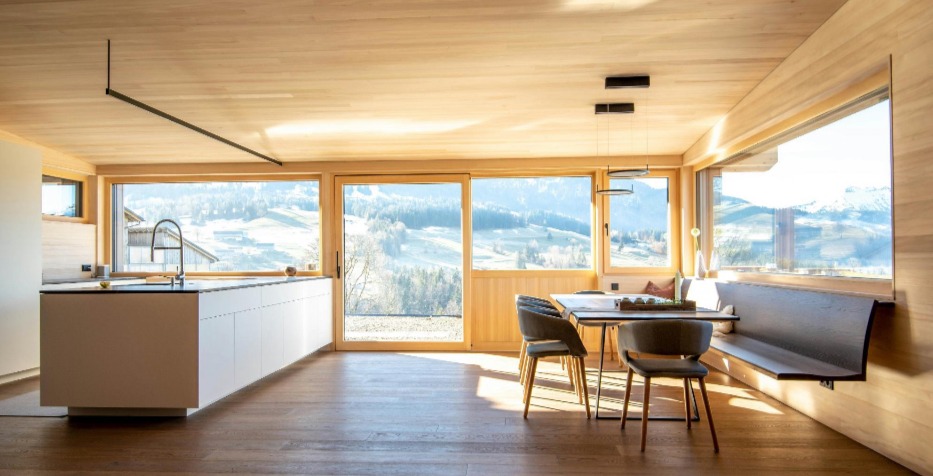The concept of modular homes has evolved significantly, overturning traditional notions of house construction with their innovative methods. These prefabricated structures not only boast modern designs and sturdy architecture but also harbor a plethora of hidden advantages. From environmental sustainability to cost efficiency, modular homes appeal to many homebuyers and builders. This article delves into the myriad benefits modular homes offer that might just make them the wave of the future in real estate. Keep reading to uncover the untapped potentials of modular housing.
Exploring the Environmental Advantages of Modular Homes
Modular homes are at the forefront of environmentally friendly construction. The controlled factory setting in which they are built significantly reduces waste compared to traditional construction sites. Instead of having excess materials left over at various build locations, the precise manufacturing process allows for a more efficient use of resources. This streamlined approach benefits nature and contributes to a cleaner worksite.
The environmental benefits extend beyond mere waste reduction. Modular homes are known for their efficient energy use, often incorporating green technologies such as solar panels and high-quality insulation. These features help reduce each home’s carbon footprint, making a modular home an attractive choice for eco-conscious consumers. Furthermore, the transportation of modules to the construction site is planned to minimize fuel consumption and emissions.
Additionally, the tight construction of modular homes results in less air infiltration, a common issue in traditionally built homes that can lead to significant energy loss. This thoughtful construction benefits the planet and is also kinder to the homeowner’s wallet. Improved air quality is another environmental benefit, as the indoor air quality of a modular home is often superior due to the controlled construction environment preventing the build-up of moisture and mold.
There are also opportunities for the reclamation and recycling of materials, with many modular construction companies dedicated to ensuring that any leftover materials are reused or recycled. This embodies the concept of sustainable development. Suppose you’re interested in exploring modular homes in your area. In that case, you can easily Google ‘modular homes Saskatoon‘ to find local providers and learn more about eco-friendly housing solutions near you.
Enhanced Build Quality and Customization in Modular Construction
A factory’s controlled environment ensures precision beyond traditional construction. Each module meets strict standards and undergoes thorough inspections, resulting in consistent quality and a superior finish. Modular homes’ meticulous construction enhances durability for transportation and installation.
Factory production doesn’t mean a lack of uniqueness—modular construction allows for extensive customization. Homebuyers can select floor plans, design elements, and finishes to create a personalized space. This flexibility makes modular homes ideal for those seeking both quality and individuality.
Another advantage of this building method is how well it lends itself to quality control. As each section of the home is constructed indoors, it is protected from the elements that can often compromise construction integrity. Adverse weather conditions such as heavy rain, snow, and excessive heat can cause delays and damage materials in traditional construction, but modular homes are almost entirely immune to these issues.
A controlled factory setting improves worker safety, reducing accidents and enhancing craftsmanship. Since modular components are made off-site, local noise, pollution, and traffic disruptions are minimized, improving overall quality and experience.
How Modular Homes Offer Improved Energy Efficiency and Savings
Energy efficiency is at the heart of modern construction, and modular homes are often at the cutting edge. These homes are designed with insulation and airtightness in mind, which leads to superior thermal performance. The result? Reduced heating and cooling needs, leading to lower utility bills for homeowners. High-quality windows, doors, and insulation materials are standard in modular homes, further enhancing their energy-saving profile.
Because of the factory precision, the fit and finish of a modular home contribute to its energy efficiency. Gaps and drafts are minimized, and the installation of heating, ventilation, and cooling systems is often more streamlined, resulting in optimized performance. These factors demonstrate a strong commitment to creating affordable homes to build and maintain.
Additionally, energy efficiency in modular homes can contribute to higher resale values. An energy-efficient home is not only cost-effective to live in but also more attractive to future buyers. This potential for increased property value complements the other fiscal advantages of modular homes, creating a compelling case for those considering this as an option for their next home purchase.
Overall, modular homes offer a forward-thinking solution combining sustainability, affordability, and superior construction quality. As the demand for efficient and customizable housing grows, modular homes stand out as a smart investment that meets modern homeowners’ needs while minimizing environmental impact.



